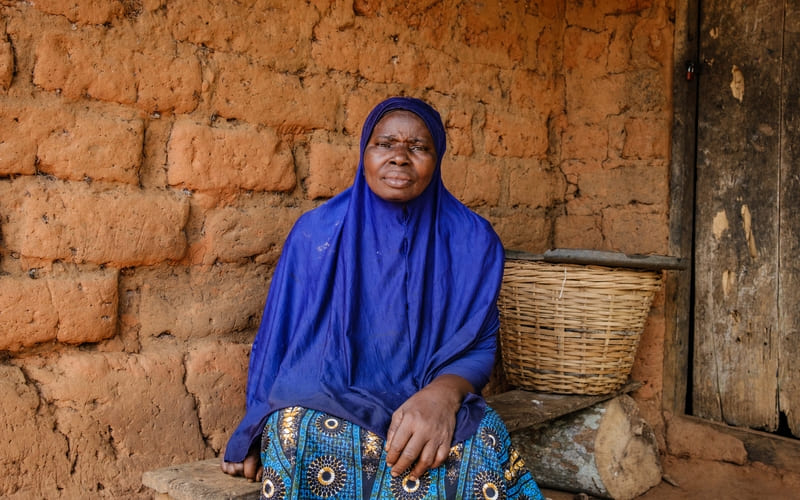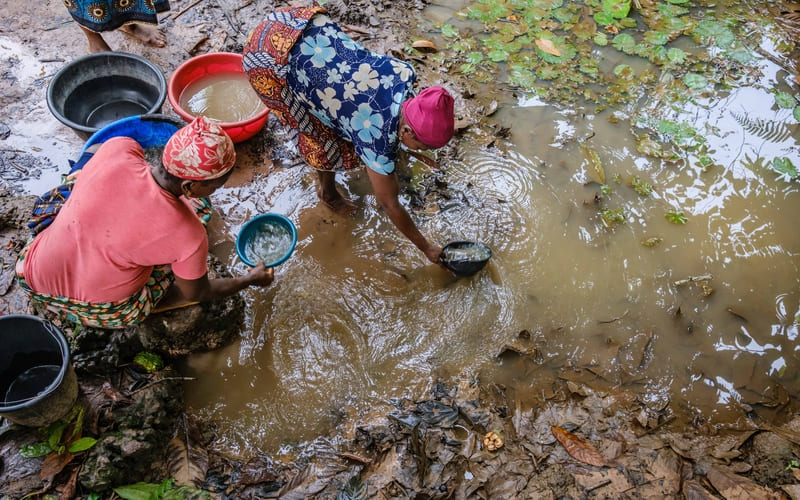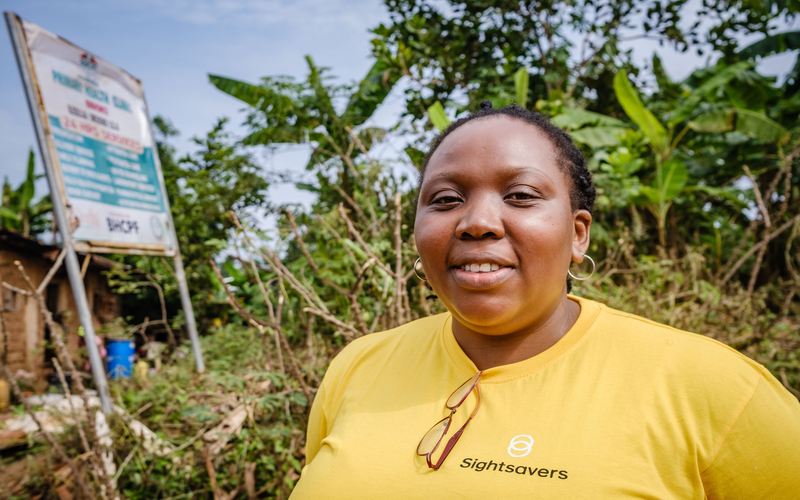By Omosefe Osinoiki
It’s no secret that when it comes to essential healthcare, women don’t get equal treatment. My research raises awareness to get women treated for the disease female genital schistosomiasis (FGS) in Nigeria. The research highlights the challenges of stigma and misdiagnosis we face – but also offers solutions.
Growing up I was told that education is power. Over time I’ve come to realise that this doesn’t mean just our formal education but also the little nuggets of knowledge that we pick up along the way. And it’s not just our own learning that empowers us but that of other people too. For the women and girls that I work with this includes the family members whose approval they must get before seeking medical help and the awareness and understanding of health workers.

Female genital schistosomiasis (FGS) is a chronically underdiagnosed disease. We estimate that 56 million women in Africa could be living in severe pain and suffering from infertility because of it. In the longer term it can increase the risk of HIV infection and has also been linked to cervical cancer. So many health workers and even gynaecologists are unaware that it exists.
FGS is a complication of schistosomiasis which is caused by parasitic worms found in fresh water which burrow into the skin causing inflammation, and sores on the cervix and vagina. It is treatable, but our research shows that lack of awareness and stigma prevent women coming forward seeking care.
Worryingly, because the symptoms of FGS are similar to some sexually transmitted infections (STIs), health workers’ lack of understanding means that many women who do seek help won’t get the right treatment.

My research has three aims: to establish how many women are infected with FGS, find ways to reduce the challenges and break down the stigma of coming forward for treatment and improving diagnostic tools so that health workers can correctly identify and treat it.
When we began our most recent study, we found that many health workers and women had no idea what FGS was. As well as treating the women, during our research we were able to raise awareness of the condition so that they could understand the disease and be empowered to make changes to stop or reduce its transmission. For example, by changing how they use their local rivers and streams for daily tasks.
We also looked at how to tackle the different barriers within the health system. For example, we found that many women were suffering in silence, worried what people would think of them if they came to the health facility complaining about their symptoms. Our work included teaching and empowering health workers to show more empathy when women and girls visit health facilities. Our studies showed that this not only made them feel able to come back, but also made it easier for them to talk to their friends and family about visiting.
The challenges are enormous. Even finding the medical kit needed to give these women an official diagnosis and getting it to the communities is a difficult task. But I love seeing something that isn’t working and start to think about what immediate changes we can make or what studies we might need to carry out to find a solution.
I like working directly with these women, hearing their experiences and seeing the impact when we find the intervention that works best for them. They can’t change many things in their lives but the little things they can improve could make a big difference to their overall health. I remember one woman, who had experienced years of infertility and the moment she realised that it could be because of FGS and decided to come forward for examination and treatment. Her getting checked was an immediate and positive consequence of the research and that makes all the challenges worth it.
It’s very important to me that my research leaves our health system stronger for these women and I would like to see FGS testing become a standard part of women’s healthcare. For example, every woman who comes in for cervical cancer screening (HPV testing) or family planning services should also be checked for FGS – particularly if schistosomiasis is common in that community.
No matter what we achieve, if health workers can’t carry on those interventions after we finish, we will never move forward. Through our research at Sightsavers we have developed a toolkit ((https://research.sightsavers.org/wp-content/uploads/2021/10/Guide-for-health-workers-on-managing-cases-of-female-genital-schistosomiasis.pdf) which health workers can use to learn about FGS and screen women correctly in the communities. With more resources we can partner with the Ministry of Health to train health workers and roll this out more widely.
For women and girls, education impacts how they see their health and the decisions they take. If they are not anxious about their health and living in pain, women are better able to care for their families, provide for their children, earn money and live productive lives. Healthy, empowered women are catalysts for wider social change that can elevate whole communities.
Investing in women’s health is not just a moral obligation, it’s a strategic move for our country. Without action to make healthcare more equitable, women will continue to be left behind and that benefits no one.
Omosefe Osinoiki is a Research Associate at Sightsavers. She is a trained epidemiologist, and her current work focuses on addressing elimination challenges of neglected tropical diseases (NTDs) in sub-Saharan Africa using effective and innovative solutions. Omosefe is actively involved in promoting the awareness of Female Genital Schistosomiasis and the inclusion of indigenous perspectives in public health research and practice.

